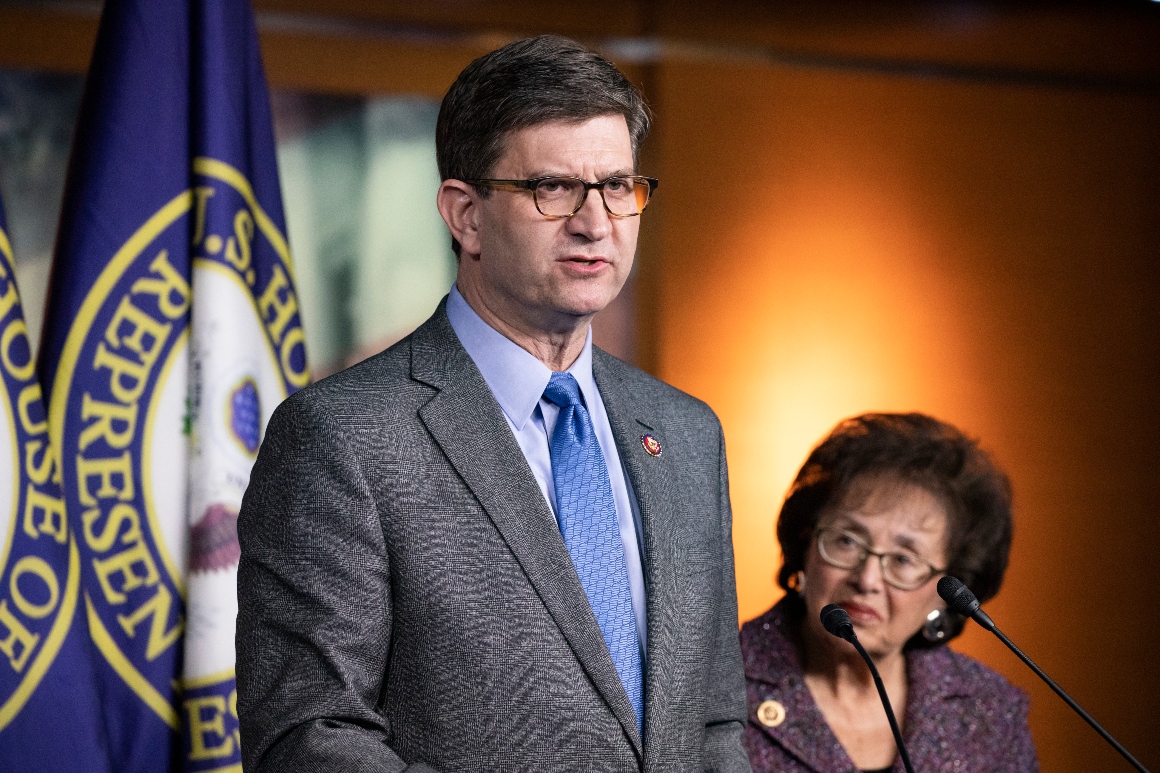
A group of House Democrats with ties to No Labels is turning on the centrist group after it attacked one of their founding members.
On Tuesday, No Labels texted people who live in the district of Rep. Brad Schneider (D-Ill.), criticizing the congressman for scoffing at their idea for a unity presidential ticket and claiming it could result in Donald Trump’s return to the presidency.
In its message, No Labels said it was “alarmed to learn that your U.S. Rep. Brad Schneider recently attacked the notion that you should have more choices in the 2024 presidential election.” They called Schneider “out of step” with his voters.
The missive did not go over well with Schneider, who is a member of the Problem Solvers Caucus that No Labels helped start on the Hill.
“No Labels’ attacks are the kind of division the country needs less of right now, and it’s a betrayal of every moderate and every problem solver in Congress,” Schneider said in a statement to POLITICO. “I helped form the Problem Solvers Caucus six years ago to reach across the aisle and find common ground, not to abandon my principles. I am as committed today as I’ve always been to the principles that reflect the values and priorities of my district, and to reaching across the aisle for the good of our country.”
Schneider was quickly joined by other members of the Problem Solvers Caucus in chastising No Labels for attacking one of their own and pushing a unity ticket.
“No Labels is wasting time, energy, and money on a bizarre effort that confuses and divides voters, and has one obvious outcome — reelecting Donald Trump as President,” said Rep. Abigail Spanberger (D-Va.) in a statement. “Now, the organization has decided to go one step further and attack a decent, well-respected, and hardworking member of the bipartisan Problem Solvers Caucus for the apparent sin of calling them out on their bogus plan.”
Rep. Dean Phillips (D-Minn.) said in an interview that the attack on Schneider was “in poor taste” and ran “counter to the very principles that certainly are worth pursuing, which is respectful disagreement.” He added that the move against Schneider had roiled the caucus.
“I speak for most of my colleagues on both sides of the aisle in the Problem Solvers Caucus that we deeply believe in the mission and are grateful for creating space in place for thoughtful dialogue in a time we need it more than ever, but disappointed in this initiative against Brad Schneider,” he said.
Despite the anger with attacks on Schneider, neither Phillips nor his fellow offended Problem Solvers Caucus members said that they would be leaving the caucus. Asked whether he had conveyed his concerns to No Labels or to its co-founder and president Nancy Jacobson, Phillips declined to share any private conversations.
The Problem Solvers Caucus is currently co-chaired by Reps. Josh Gottheimer (D-N.J.) and Brian Fitzpatrick (R-Pa.). A spokesperson for Fitzpatrick did not respond to a request for comment, but Gottheimer said in a statement that he opposed No Labels’ 2024 efforts.
“Like Brad, this is not an effort I’m personally involved with or supportive of,” he said. “I also believe constructive conversations are the best way to solve problems and resolve disagreements — not personal attacks.”
No Labels defended its message to voters in Schneider’s district.
“Two-thirds of Americans don’t want a rematch of the 2020 election and No Labels is the only organization responding to what they do want, which is more voices and choices in our political process,” No Labels co-executive director Margaret White said in a statement. “Outside the Washington bubble, No Labels’ 2024 presidential insurance project is striking a chord and we’re going to keep working to get ballot access in states across the country. America’s common sense majority is waking up and ready to be heard.”
No Labels has said that it’s raised or received commitments for tens of millions of dollars for its “unity” ticket that it is considering running next year if it deems both the Democratic and Republican presidential candidates to be too extreme. The group has insisted that it will pull the plug on the venture if it looks like it will become a “spoiler” and result in Trump’s election. But the group’s effort has also received heavy pushback from the moderate Democratic group Third Way, which says it is poised to precisely play that spoiler role.
No Labels has pushed back aggressively at its critics. And its decision to go after Schneider underscores the degree to which it has become singularly focused on its 2024 campaign venture over all other functions, including building alliances on the Hill.
In the message to voters in Schneider’s district, the group suggested a sample email that recipients could send to Schneider’s office. A spokesperson for Schneider said as of late Thursday afternoon, only eight form letters have been sent to the office.
The pushback from some of No Labels’ natural allies adds to the recent turmoil the group has faced. It lost its top communications adviser Mark Halperin earlier this spring and has been roiled by internal staff turmoil.

